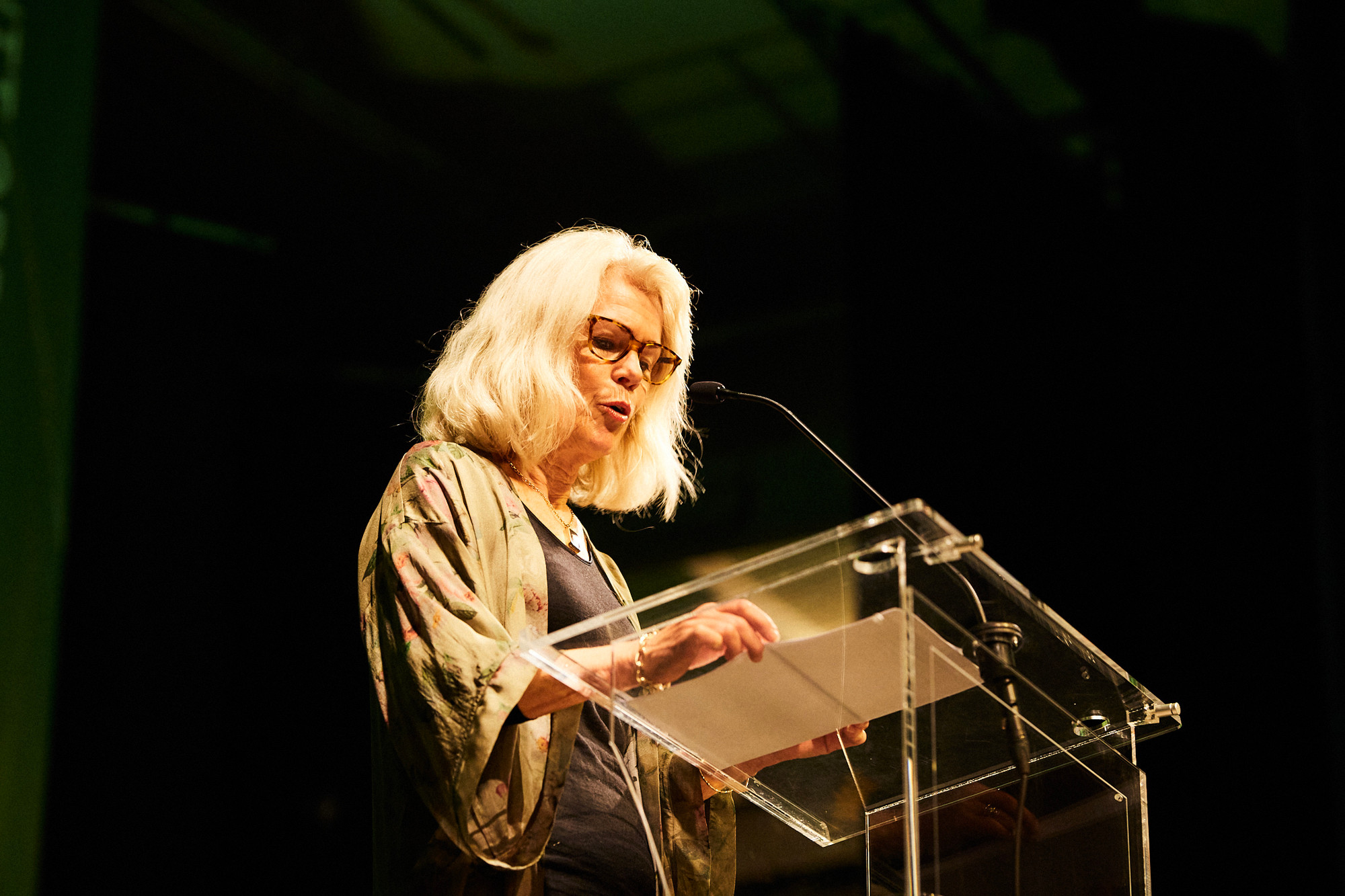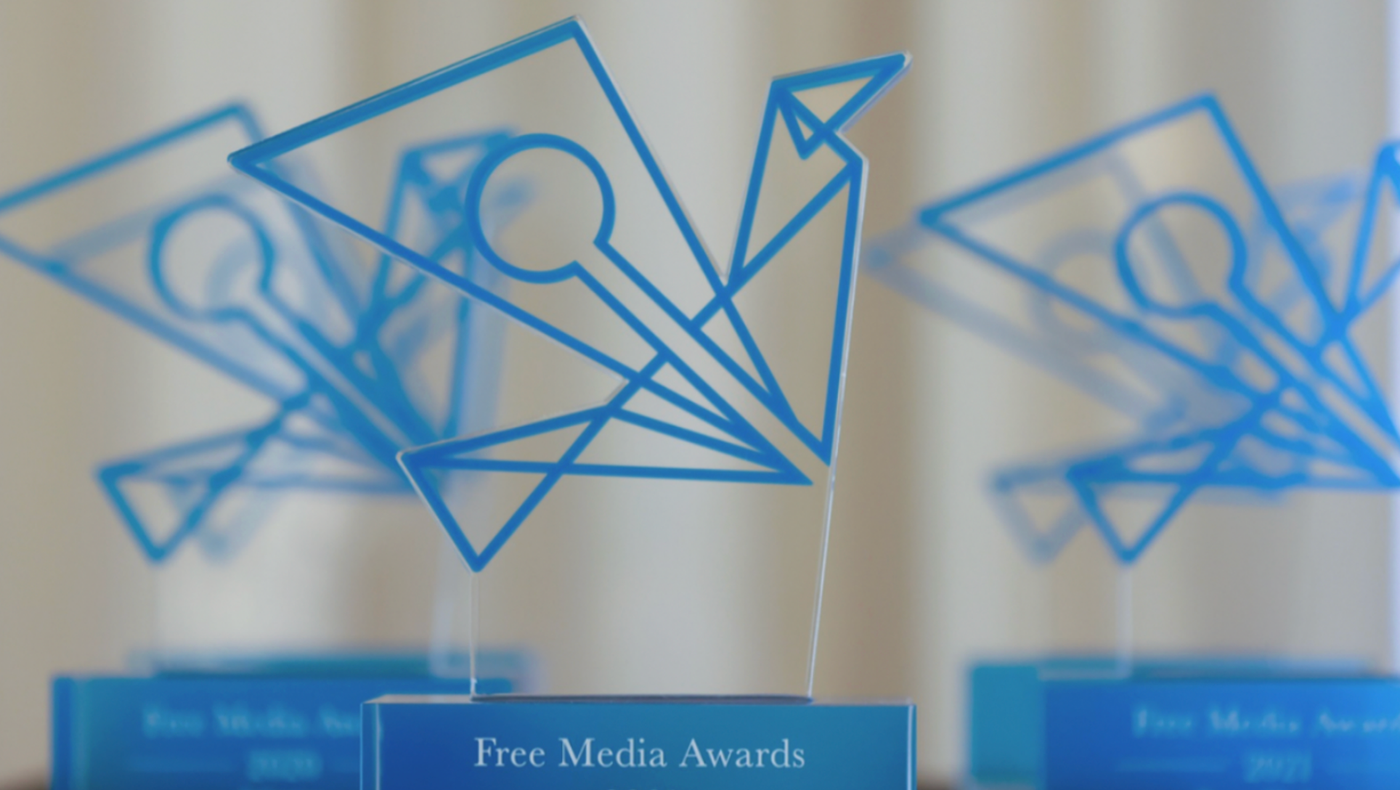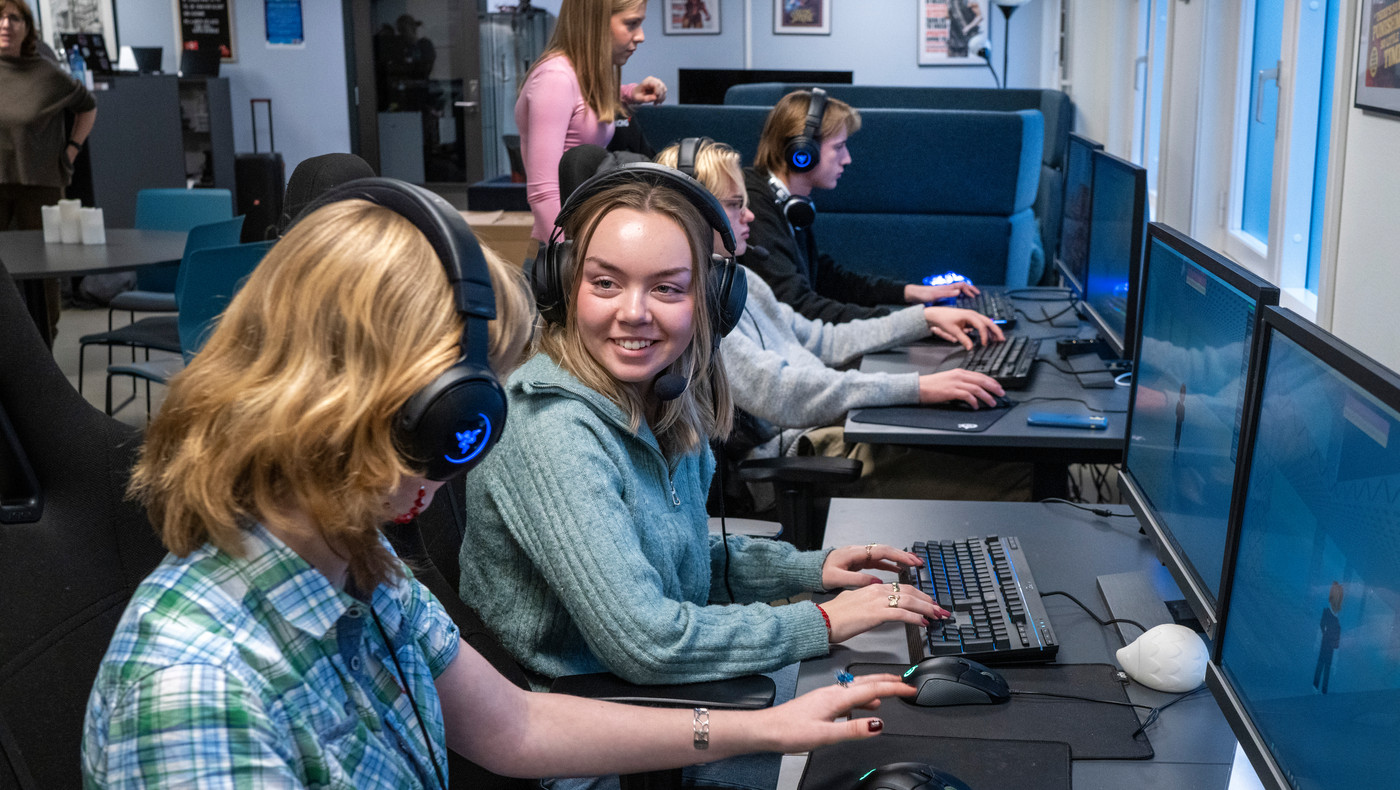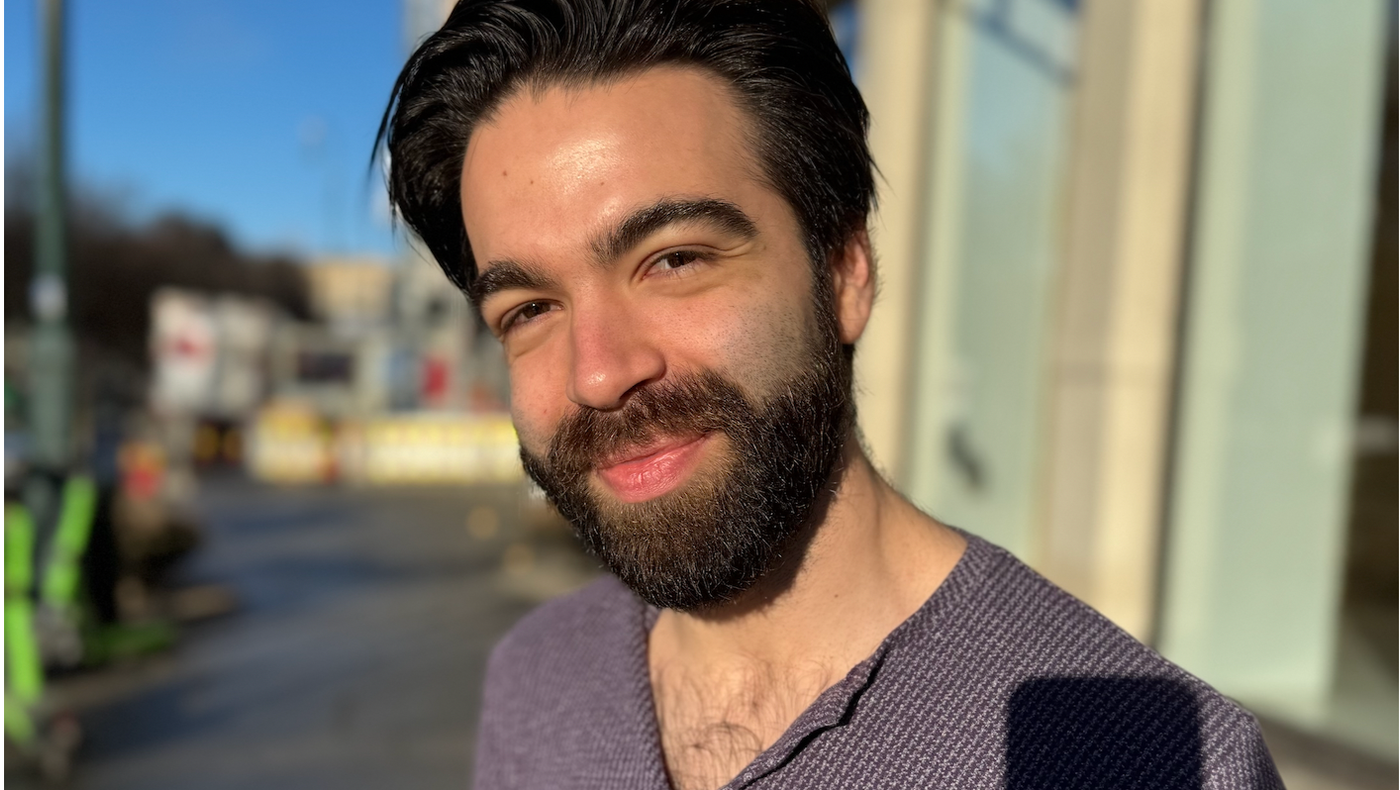Feature article: The voices that are missing
On 30 September, Jan Grue, Olaug Nilssen and Bjørn Hatterud were awarded the 2021 Fritt Ord Foundation Prize for their powerful, critical efforts to shed light on the social situation and freedom of expression culture for the disabled in Norway. This feature article is an abridged version of the speech delivered at the award ceremony by Grete Brochmann, chair of the Fritt Ord Foundation Board.
At a time when diversity has become a ubiquitous word with positive connotations, it is striking how rarely discussions include the disabled.
On 30 September, the three authors, Jan Grue, Olaug Nilssen and Bjørn Hatterud, were awarded the Fritt Ord Foundation Prize for 2021 for their powerful, critical efforts to shed light on the social situation and freedom of expression culture for the disabled in Norway.
Through debate-provoking talks and high-quality literature, they draw attention to the social problems that low expectations and a weak freedom of expression culture actually entail for this highly diverse group.
Grue, Hatterud and Nilssen cite examples from their own lives and experiences, based either on their own disability or that of a relative. The three literary works demonstrate how potent autobiographical fiction can be as a genre. This form of writing communicates political realities in a different way: effective consciousness-raising through empathy and poetry.
The Fritt Ord Foundation is concerned on a fundamental level about different groups’ qualifications for participating in public debate. Individuals with reduced functional abilities find it especially difficult to make themselves heard. Opinions and perspectives from this group are often overlooked in discussions about human rights and freedom of expression, and the group is rarely represented in public reports or studies. The 18 members of the Freedom of Expression Commission include many from minority backgrounds, but none with reduced functional abilities.
Stortinget (the Norwegian Parliament) recently voted down a third attempt to incorporate the UN Convention on the Rights of Persons with Disabilities into Norwegian law. The first survey of hate speech against persons with disabilities indicated that one of three experience offensive speech regularly, while one of four report experiencing hate speech. In contrast to gay, ethnic or religious minorities, for example, persons with disabilities have nonetheless received little attention from the police or the courts. At a time when diversity has become a ubiquitous word with positive connotations, it is remarkable how rarely discussions include persons with disabilities.

Photo: Helge Brekke
Through their books, the three authors, Grue, Nilssen and Hatterud, have created a platform in the public space and given voices to people who are often unable to find their own voices, making it difficult for them to be seen or heard. Through their own life experiences, these authors are helping to write a marginalised segment of society out of the shadows. While all three tell of their ambiguous dealings with a well-developed welfare state, they nonetheless write with three very different voices.
With his book ‘I live a life like yours’ (2019), Jan Grue presented a sort of sociology of differentness in literary form. It is the story of a life-long struggle against definitions set by others, and a continuous battle to overcome physical limitations. The author sees himself as privileged and vulnerable. He writes: “I have come this far by my own efforts, exclusively because I live in a society that acknowledges these efforts and supplements them when need be.” However, the book also bears witness to a long, perpetual battle with the system to achieve rights, and tells of grave mistakes that have been made.
In this year’s book, ‘If I fall’, ‘unseen work’ is the operative phrase. It is about the overwhelming amount of unseen work needed just to get through everyday routines. The author’s self-respect seems inextricably linked to being able to work.
Jan Grue’s books are philosophical and existential. They resonate with all of us. He says that he has literally written away the way others look at him.
Bjørn Hatterud’s autobiographical books are also stories of overcoming tremendous odds. Of growing up gay and disabled in a small rural village. The books ‘Against Normality’ and ‘Me, Mum and Mjøsa’ are powerful accounts of a childhood perpetually riddled with hard work and physical pain. It is a harsh and painful story, but it is written with spirituality and mettle, as well as a good portion of humour and warmth. His books offer a melange of travelogues through time and space, analyses of towns/villages, class structures, bodies, local communities, loneliness and family.
No one who has read the books by Bjørn Hatterud can be in any doubt about the trials and tribulations he has been subjected to, what barriers he has faced and what poor prospects lay ahead. Yet in retrospect, his life story is fundamentally a light-hearted account. Despite being put on disability at the age of 30, he gradually made his way into a field of creativity when he started writing texts about differentness. About being a gay man who did not fit in, about disabilities and a stigmatised working class culture. He is an art critic, curator, creator of experimental music and author. Step by step, he carved out a “professional career in cultural life by being different”. The author describes disability as a paradoxical escape route out of the public eye.
Olaug Nilssen writes from a relative’s perspective. About being the parent of a special needs child, and about political and existential aspects of this. ‘A Tale of Terrible Times’ is described as autobiographical. It is about a family situation involving the care and resource needs of their son Daniel, a disabled child with autism. The common denominator for persons with disabilities is that they are not often able to be speak on their own behalf. In many interviews, Olaug Nilssen has reflected profoundly on the ethical dilemmas involved in telling the story of such a person. This is an extremely difficult choice. Her son will never be able to voice his objections.
However, her thoughts resulted in a compelling novel that created quite a stir in Norway. The book is about the demanding nature of love and a struggle to get access to the right treatments, as well as to get relief in a vulnerable family situation. The book has ensured that this topic will be taken far more seriously in future.
The author herself says that fiction as a medium has proven highly effective. She has no count of how many feature articles, debates and lectures she has contributed earlier, but recognises that the novel put the topic on the agenda in a whole new way. Gallows humour and despairing honesty seem to have worked.
All three of these authors write about unusual, ordinary lives. The three authorships have raised awareness of the importance of a more tolerant society. They are about equality and dignity, as well as politics and representation. The basic premise for this is that topics and perspectives are addressed and discussed.
Jan Grue, Olaug Nilssen and Bjørn Hatterud all three help expand the boundaries of freedom of expression in Norway.
This text was published in the newspaper VG on 1 October 2021. An unabridged version was delivered orally at the ceremony for the Fritt Ord Foundation Prize on Tuesday, 30 September.




